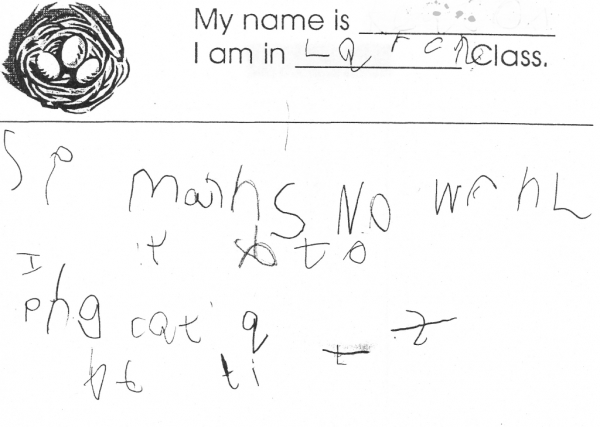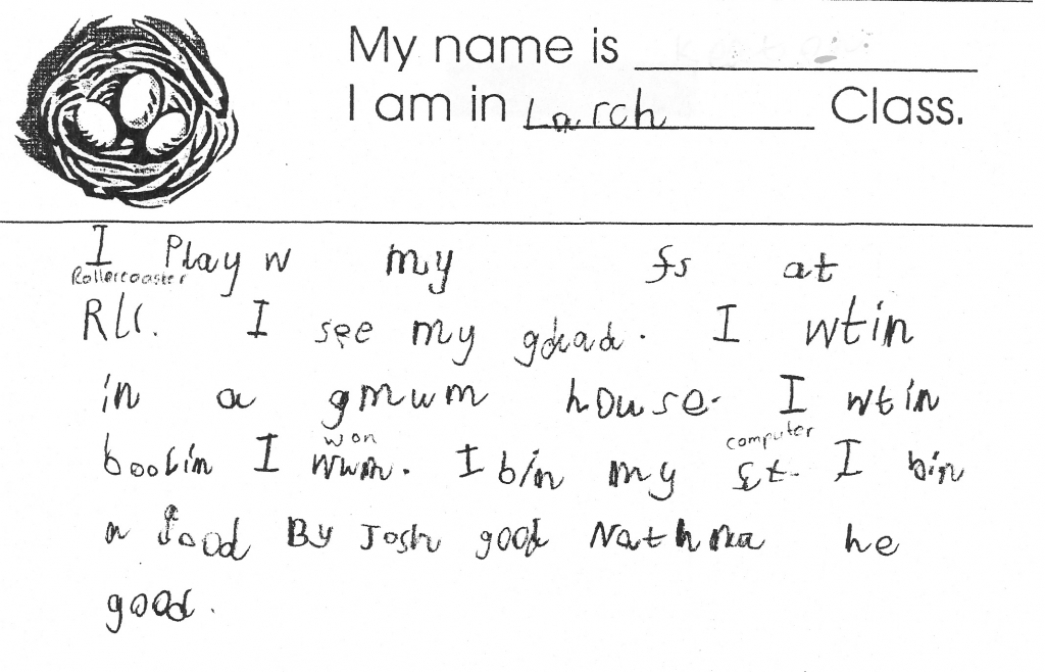Children learn at different rates. Some will make rapid progress after starting Direct Phonics, the majority will learn together slowly and steadily and a few will have such marked difficulties that they will need to be taught individually.
For the children’s motivation a record system needs to celebrate the different rates and aspects of progress of all these children.
It is particularly important to observe how well the children have generalised into the classroom what they have learnt from the Direct Phonics programme. Below is an illustration of the records kept in one school.
Comments | |
Girl A | Girl A has made excellent progress in terms of attitude and achievement. She now has the maturity and the concentration to look closely at words and her own work and make improvements. In her independent writing, she still has the tendency to rush and often forgets to evaluate her work. She enjoys the routine and familiarity of the small group situation.
|
Boy A | Boy A’s spelling has improved a lot and he has gained the confidence to attempt unfamiliar words. He has an extremely positive attitude towards the group and is always eager to please. Independent writing is now based on phonic knowledge and not merely letter strings.
|
Boy B
| Boy B’s spelling has improved since the beginning of the study, as has his confidence. This also is shown in his class writing. His attitude in these sessions is really positive and he particularly enjoys the idea of learning in a small group. However, his speech is still a hindrance to his progress.
|
Boy C
| Boy C has gained confidence attending this programme. Moreover, his speed has improved in particular. He refers back to the lessons in his own class and this has enabled him to improve his spelling and fluency. He writes more now and completes his work much quicker.
|
Boy D
| Boy D has made excellent progress. In particular, he has stopped guessing words and is now trying to stretch out his words to make plausible attempts at unknown words. Similarly, his reading now is less guess work and more reasoned attempts using the phonics. Mum reports an improved attitude at home. |
Samples of children’s writing are a useful source of evidence. Below is an example.

Independent writing April 2005: Sam could not re-read his work, two key words are correct but don’t make sense, letter formation is poor.

Independent writing April 2006: Sam can re-read his work. He has made much progress but continues to need extra help.
This example illustrates the qualitative information of progress that cannot be provided by standardised tests.
Children who struggle with basic literacy find it hard work and can only concentrate for a short period of time. Little and often is the best way for them to make progress. We recommend lessons at least four times per week of 20 to 30 minutes. The lessons are structured and scripted such that they should not take more than 30 minutes.
The children's motivation increases over time as they see that they are making progress.
